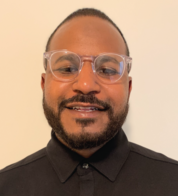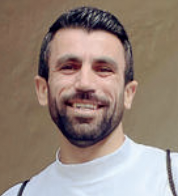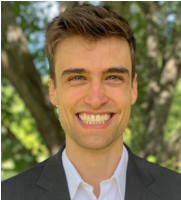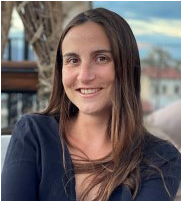Harvard MRSEC postdocs selected for 2024 Rising Star Symposium
Researchers recognized for accomplishments and demonstrated contributions
By Carole H. Mezian
December 11, 2024
Four Harvard MRSEC researchers were selected to present their work at the 2024 Rising Stars in Soft and Biological Matter Symposium. The postdocs are:

Mustafa K. Abdelrahman Mustafa K. Abdelrahman
Research Area: Harvard University Lewis Lab
Harvard's NSF-MRSEC IRG I: Programmable Multiscale and Multi-Material Control of Functional Soft Matter
Symposium session topic: Advances in Polymer Design and Functionality
Symposium talk title: Material assembly from collective action of shape-changing polymers

Hamed Almohammadi Hamed Almohammadi
Research Area: Harvard University Aizenberg Lab
Harvard's NSF-MRSEC IRG I: Programmable Multiscale and Multi-Material Control of Functional Soft Matter
Symposium session topic: Soft Matter: Self-Assembly, Topology, and Mechanics
Symposium talk title: Self-assembly of shape-shifting chiral colloids

Dylan M. Barber Dylan M. Barber, Harvard University Lewis Lab
Research Area: Harvard University Lewis Lab
Harvard's NSF-MRSEC IRG I: Programmable Multiscale and Multi-Material Control of Functional Soft Matter
Symposium session topic: Materials and Electrolytes Relevant to Energy and Water
Symposium talk title: How the inter-charge tether governs properties in zwitterionic dielectrics

Giada Risso Giada Risso
Research Area: Harvard University Bertoldi Lab
Harvard's NSF-MRSEC IRG I: Programmable Multiscale and Multi-Material Control of Functional Soft Matter
Symposium session topic: Soft Matter: Self-Assembly, Topology, and Mechanics
Symposium talk title: Stretch and twist of soft double-helix chiral rods
The 2024 Rising Stars in Soft and Biological Matter Symposium is co-sponsored by University of Chicago and the University of California San Diego MRSECs. The sponsoring MRSECs have recognized four postdoc scientists who are supported by the Harvard University MRSEC.
The symposium provides a platform for exceptional early-career soft matter, energy materials, and biological matter scientists to present their work to their peers. Symposium participants are selected based on a track record of research accomplishments and demonstrated contributions to enhancing diversity, equity, and inclusion in STEM (Science, Technology, Engineering, and Mathematics). Prior symposiums were held in 2020 and 2022.
Authorship, funding, disclosures
Researchers are supported by the National Science Foundation through the Harvard University Materials Research Science and Engineering Center grant DMR-2011754.
